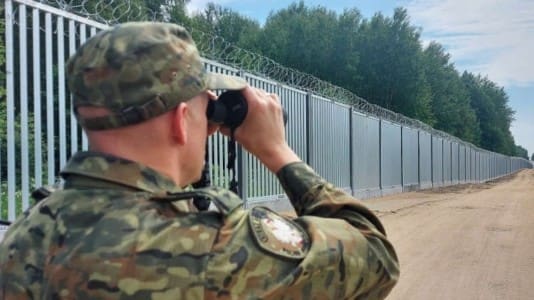A significant segment of the Polish population feels a sense of shame about their national identity, a comprehensive study entitled “Do we identify with Poland?” shows.
The study, conducted by the Institute of Psychology of the Polish Academy of Sciences (PAN), conducted a survey of a representative sample of 1,504 Polish women and men aged 18-96 years, with 14 percent of this group saying they were ashamed of Poland. This group has been labeled as the “Shamed by Poland” group by the study’s authors.
Overall, the survey identified a number of groups within Polish society and labeled them: Fulfilled Democrats (20 percent), Open Traditionalists (23 percent), Engaged Conservatives (15 percent), and — particularly numerous — Withdrawn Pessimists (28 percent).
[pp id=53175]
Let us address the characteristics of three of these groups, which together constitute 60 percent of the total. Let’s start with the Fulfilled Democrats. According to the authors of the study, this is a segment of people for whom “being Polish is OK.” This group has the highest average age and is the best educated. They rarely watch public television channel TVP and more often watch the liberal television network TVN. After the “Shamed by Poland” group, this is the segment with the lowest percentage of people identifying themselves as believers in God.
Among the Withdrawn Pessimists, identification with Polishness is weak and quite unstable — it depends on external conditions.
“These are people rather focused on their own daily life than on the affairs of the country. For them, being Polish doesn’t mean much.” This is the youngest segment, with the most professionally active people.
“They do not watch TVP. Sometimes they watch TVN,” write the study’s authors.
Shamed by Poland is a group of people with low identification with the Polish nation. They have a low sense of connection with other Poles and only understand Polishness in a very shallow manner. For them, being Polish is a reason for shame. This segment typically has left-wing views, and European identity is more important to them than any Polish identity.
“(This group) has the lowest percentage of Catholics — the segment is practically secular and has a majority of women (57 percent), professionally active, but dissatisfied with their material situation. It also has the highest percentage of people living in large cities, and after Fulfilled Democrats, it is the second-largest group in terms of education. They watch TVN, do not watch TVP. They are ashamed of being Polish, especially when dealing with foreigners. Unlike the majority, knowledge of culture and history is not important to them,” write the authors.
[pp id=69659]
These identity issues are not new, but can be traced back to the 17th century, when the Polish elite showed doubt in the nation following a series of devastating wars, leading to a preference for geopolitical subordination to Western powers. This historical context may provide insights into the current identity crisis and could inform future analyses as societal attitudes continue to evolve.
After a series of disasters brought by the Cossack wars, the Muscovite invasion, Swedish, Brandenburg, Transylvanian, and finally the Turkish-Tatar, collectively destroying the lands and people of the Polish Republic more than World Wars I and II combined, doubt appeared among some of Poland’s elite class. At the time, Piotr Kochanowski, one of the members of the powerful so-called “party of malcontents,” who were in fact in total opposition to the Polish king, were driven by hatred for the competing political camp within Poland. They placed all hope in the emerging imperial center in the West, which was represented by France in the form of Louis XIV.
So, Kochanowski contacted the French envoy in Warsaw, writing: “We decide not only for an alliance with France but for the (…) incorporation of the Kingdom of Poland into the Kingdom of France; (…) We want to live in our homeland according to French freedom.”
For a portion of Poland’s elites, the Polish Commonwealth (“Rzeczpospolita “in Polish), ceased to be the center and began to be viewed as peripheral. The consensus on geopolitical subordination was combined for the first time with something more; with the conviction that the West had revealed the only correct model to emulate, necessitating the condemnation and rejection of everything that we were before, and what our ancestors had achieved in co-creating Europe in the previous centuries.
At the time, this group represented the “precursor” of the “ashamed party,” and the consequences of its actions were painfully felt by Poles in the following centuries and — as can be seen — are still being felt.




